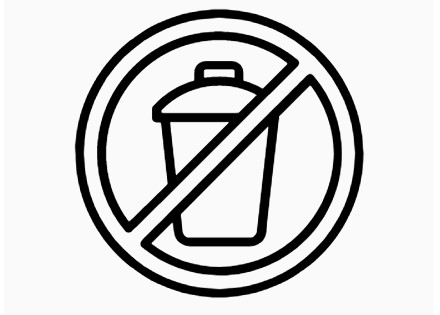Wishcycling

|
Contents |
[edit] Introduction
Wishcycling (wish-cycling or aspirational recycling) describes the unfounded (although often well intentioned) belief that something is recyclable even though it is not. A person who wishcycles often does not know whether or not the item is recyclable, but hopes (or wishes) the item is dealt with in an environmentally responsible manner once it is collected along with other legitimately recyclable materials.
[edit] History
The term wishcycling originated in the waste and recycling industry in the United States. It is believed it was first used in 2015 by a journalist reporting on recycling who had heard an executive from the industry use the term to describe the impact of misdirected recycling activities. Since that time, it has become more widely adopted and is commonly used outside the recycling industry, particularly by the media.
[edit] Problems of wishcycling
Excessive wishcycling can contaminate recycling streams. In some instances, this can result in fines, warning notices or even the discontinuation of recycling initiatives.
Many modern products are made from multiple materials, which is why it can be difficult to be certain what items are recyclable. Considering how an item is made may make it easier to determine whether or not it can be recycled.
In addition, what may be recyclable in one area may not be acceptable in another. Single stream or dual stream recycling policies dictate different sorting practices.
[edit] Resolving wishcycling
Learning which items can and cannot be recycled can help put an end to wishcycling.
The simple act of keeping materials clean (for instance, cleaning off residual substances that contaminate the waste stream) can also be helpful.
[edit] Related articles on Designing Buildings
Featured articles and news
The challenge as PFI agreements come to an end
How construction deals with inherit assets built under long-term contracts.
Skills plan for engineering and building services
Comprehensive industry report highlights persistent skills challenges across the sector.
Choosing the right design team for a D&B Contract
An architect explains the nature and needs of working within this common procurement route.
Statement from the Interim Chief Construction Advisor
Thouria Istephan; Architect and inquiry panel member outlines ongoing work, priorities and next steps.
The 2025 draft NPPF in brief with indicative responses
Local verses National and suitable verses sustainable: Consultation open for just over one week.
Increased vigilance on VAT Domestic Reverse Charge
HMRC bearing down with increasing force on construction consultant says.
Call for greater recognition of professional standards
Chartered bodies representing more than 1.5 million individuals have written to the UK Government.
Cutting carbon, cost and risk in estate management
Lessons from Cardiff Met’s “Halve the Half” initiative.
Inspiring the next generation to fulfil an electrified future
Technical Manager at ECA on the importance of engagement between industry and education.
Repairing historic stone and slate roofs
The need for a code of practice and technical advice note.
Environmental compliance; a checklist for 2026
Legislative changes, policy shifts, phased rollouts, and compliance updates to be aware of.
UKCW London to tackle sector’s most pressing issues
AI and skills development, ecology and the environment, policy and planning and more.
Managing building safety risks
Across an existing residential portfolio; a client's perspective.
ECA support for Gate Safe’s Safe School Gates Campaign.
Core construction skills explained
Preparing for a career in construction.
Retrofitting for resilience with the Leicester Resilience Hub
Community-serving facilities, enhanced as support and essential services for climate-related disruptions.





















